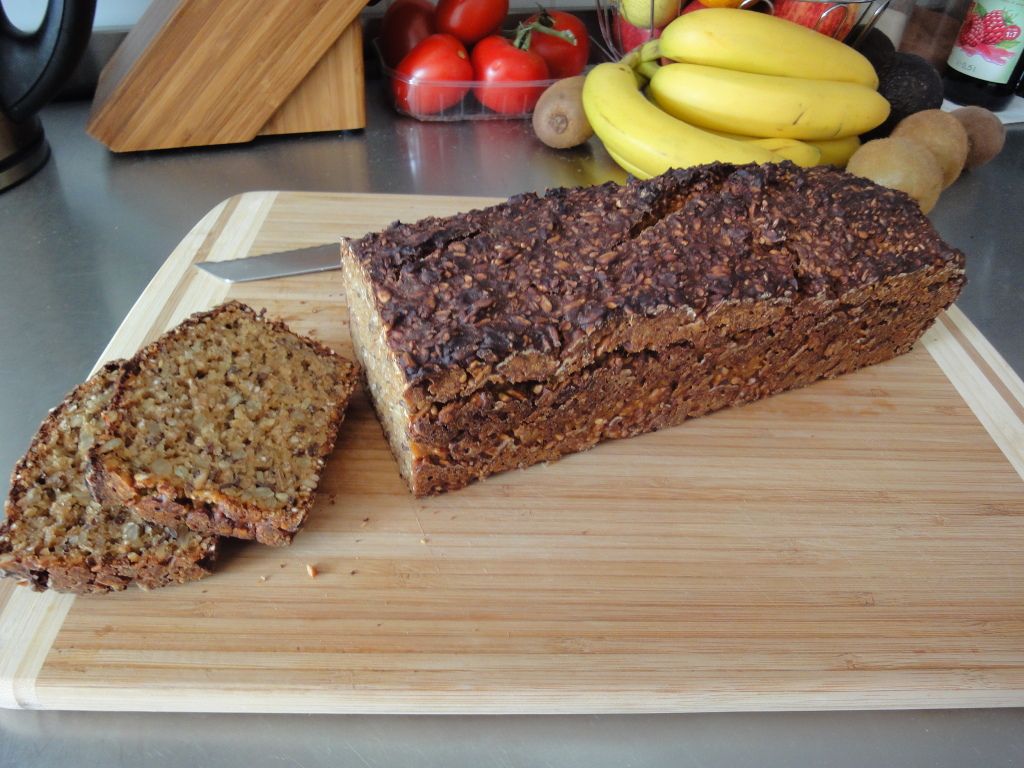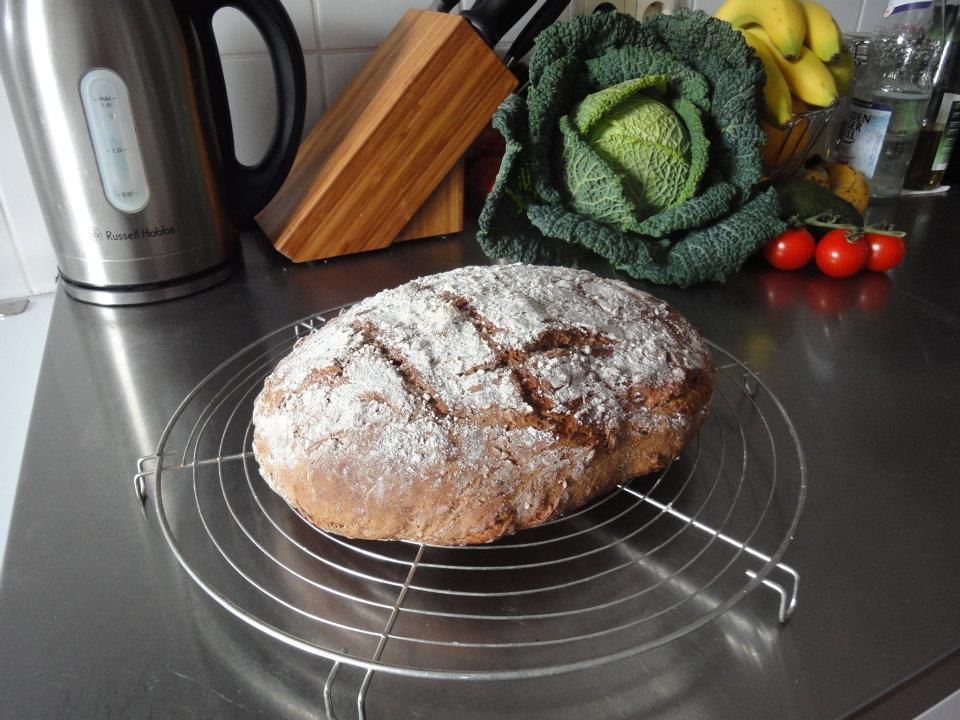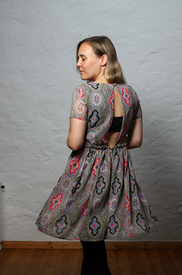Bread is not bad
Replies
-
Bread is not Paleo Approved™, all foods that are not Paleo Approved™ cause inflammation and are bad for you.
Bread is not bad. I don't have it everyday simply because of the calories in some. These diets brainwash people, i swear0 -
White bread is NOT almost all sugar! I love that you are trying to dispute a myth by perpetuating another. No food is bad unless you consume in excess. It is only after I have eaten my body's allotted maintenance calories that food begins to take a negative effect... and that would not matter if the extra food is bread, cake, or carrots. If my body can't use it, then it will store it.
:drinker:0 -
Would you mind elaborating a little more? I am having some serious digestive problems and so far have it tracked to wheat and dairy. I rarely eat potatoes b/c I am allergic to them in their raw state (Think hives and rash just from peeling them) and therefore don't feel I should eat them either. I don't feel well after eating rice quite often either. Was this something that you discovered via trial and error or with help from an allergist, nutritionist, or other healthcare professional? I've been through a whole battery of tests with no answers and getting sooo frustrated!For a normal person with a perfectly normal digestive track, bread and other carbs are fine.
For someone with digestive disorders, like myself, bread and other carbs such as potatoes, rice, rye, etc... can cause problems.
But yes, to each his/her own.0 -
Bread is not Paleo Approved™, all foods that are not Paleo Approved™ cause inflammation and are bad for you.
Good thing I'm not paleo! I love being a modern, evolved woman instead of a caveman!0 -
Most of what I eat is carbs in the form of bread, crackers pasta and rice so trying to cut that out would be impossible for me. I"m working on eating more wheat/ rye and multi grains.0
-
Would you mind elaborating a little more? I am having some serious digestive problems and so far have it tracked to wheat and dairy. I rarely eat potatoes b/c I am allergic to them in their raw state (Think hives and rash just from peeling them) and therefore don't feel I should eat them either. I don't feel well after eating rice quite often either. Was this something that you discovered via trial and error or with help from an allergist, nutritionist, or other healthcare professional? I've been through a whole battery of tests with no answers and getting sooo frustrated!For a normal person with a perfectly normal digestive track, bread and other carbs are fine.
For someone with digestive disorders, like myself, bread and other carbs such as potatoes, rice, rye, etc... can cause problems.
But yes, to each his/her own.
It sounds like you have an immune disorder of some sort. Have you gone to a gastroenterologist? Have you had a colonoscopy/biopsy? I was diagnosed with crohn's disease at a young age and have gone through phases of "my body can eat this" and "my body cannot eat this". Everything became a gamble and still is...
Among the Crohn's and Colitis community, a lot of people try to stick to the Specific Carbohydrate Diet (http://www.breakingtheviciouscycle.info/) . It ties closely to a paleo/primal diet but revolves around the notion that certain foods trigger TNF factors inside the digestive track. Look into it, give it a shot for 30 days... see if that helps. If you smoke, quit. If you drink, cut back.
Good luck to you! I hope you figure it out!0 -
if you want to eat bread go ahead and eat bread, but personally i know that by drastically lowering my consumption of it I'm far healthier now. there is plenty of ways to get your nutrients and daily needs we dont all have to eat the same way.0
-
The only bad thing I find about white bread is that it tastes so good... I HAVE to stay away from it. Ive been known to demolish a whole loaf of white bread with a pot of marmite.0
-
am i the only person who has no idea what marmite is?The only bad thing I find about white bread is that it tastes so good... I HAVE to stay away from it. Ive been known to demolish a whole loaf of white bread with a pot of marmite.0 -

Nom!
You will never be able to drag me away from my crisp fresh whole wheat poppy and sesame seed bread.
My baker is awesome.0 -
It's perfectly fine-- aside from all the gluten.0
-
It's perfectly fine-- aside from all the gluten.
Unless you have a medical condition, there's nothing wrong with gluten.0 -
It's perfectly fine-- aside from all the gluten.
What's wrog with gluten if you have no gluten intolerance?0 -
It's perfectly fine-- aside from all the gluten.
What's wrog with gluten if you have no gluten intolerance?
Absolutely nothing. Gluten-free is just hyped by celebrities and has absolutely no real science behind it.
You need fiber, gluten-based products are rich in fibre.0 -
I love bread. I just don't eat it that often.
I'm making some right now. MMMMM!0 -
Carbs FTW lol
 I love my bread, pasta, rice & spuds and I'll never give them up!
I love my bread, pasta, rice & spuds and I'll never give them up!
Never ever had trouble with weight loss while eating good carbohydrates...including all of the above PLUS fruits and veggies.
NOM!
 0
0 -
What is wrong with white bread - not sure if that has been answered successfully yet!0
-
You can hear it all the time - here on MFP and in the media - Bread is bad (so is pasta, potatos and rice).
But that's not really true. It depends on what kind of bread (pasta, rice, etc.) you eat. Probably the bread thing is even more an american problem or myth, because most of the American bread is white bread which is really nearly the same as sugar. But in Europe, especially in Germany, there is really good bread with no white flour in it. Instead wholemeal flour, spelled flour, rye flour and a lot of unprocessed wholemeal is used. You also can find linseeds, pumkin seeds, sunflower seeds, walnuts, etc, in it - depending on what bread you buy or bake yourself.
I always bake my bread myself - it's a sourdough with half spelled flour and half rye flour and linseeds and walnuts added. That's very yummy! I once had an interview with Harley Pasternak, the personal trainer of many actors and singers, and he told me if he could give his clients five tipps one of them would be "Eat more German bread (black bread)".
Same with rice - eat Basmati rice or Basmati wholemeal rice, both is really healthy and full of vitamins and minerals - and I fills you up.
Potatos, cooked in saltwater or as mash potatos with only milk added is also no heavy feed. Potatos have not much calories and they are healthy.
Of course, if you are happy with you low/no carb diet just go on, but it's not right to say bread, etc is in gernal unhealthy or makes you fat (if it's the right bread).
I just wanted to say ... ;-)
There is a danger to blanket statements on both sides of this argument. Not all restrictions or recommendations work for all bodies. Are you assuming that all Americans only eat white bread, etc? That's also an erroneous stereotype. ...and it's spelt flour!0 -
if you like it, eat it. be sensible. log it. and make sure you're eating enough fat and protein as well.0
-
It's perfectly fine-- aside from all the gluten.
What's wrog with gluten if you have no gluten intolerance?
Absolutely nothing. Gluten-free is just hyped by celebrities and has absolutely no real science behind it.
You need fiber, gluten-based products are rich in fibre.
gluten intolerance aside,
insoluble fiber just rips cell linings and makes poo bigger. veggies have plenty of soluble fiber...0 -

Yummy!0 -
I miss bread sometimes =/0
-
And more yummy!
 0
0 -
I'm surprised nobody mentioned this book: "Wheat Belly" It's an interesting read about grains in your diet and the problems associated with them.0
-
am i the only person who has no idea what marmite is?The only bad thing I find about white bread is that it tastes so good... I HAVE to stay away from it. Ive been known to demolish a whole loaf of white bread with a pot of marmite.
Vegemite? 0
0 -
I dig bread! I count it, I think it would prolly be bad if I ate like 4 pb&j's a day like I used to when I was a fatty. Wait. Still a fatty, just a healthier fatty. Also I'm a vegetarian so I can't get down with the all protein all the time stuff. How do those people go numero dos? I couldn't do it. It would totally stop me up. Okay tmi tmi I know!0
-
It's perfectly fine-- aside from all the gluten.
What's wrog with gluten if you have no gluten intolerance?
Absolutely nothing. Gluten-free is just hyped by celebrities and has absolutely no real science behind it.
You need fiber, gluten-based products are rich in fibre.
gluten intolerance aside,
insoluble fiber just rips cell linings and makes poo bigger. veggies have plenty of soluble fiber...
Wrong and veggies have insoluble fiber as well."Insoluble fibers are considered gut-healthy fiber because they have a laxative effect and add bulk to the diet, helping prevent constipation. These fibers do not dissolve in water, so they pass through the gastrointestinal tract relatively intact, and speed up the passage of food and waste through your gut. Insoluble fibers are mainly found in whole grains and vegetables.
Sources of insoluble fiber: whole wheat, whole grains, wheat bran, corn bran, seeds, nuts, barley, couscous, brown rice, bulgur, zucchini, celery, broccoli, cabbage, onions, tomatoes, carrots, cucumbers, green beans, dark leafy vegetables, raisins, grapes, fruit, and root vegetable skins."
Another article:"There are two kinds of fiber, soluble and insoluble, and neither contains calories. Soluble fibers are able to dissolve in warm water; this means that they are able to absorb a lot of water and other particles. Insoluble fibers are not able to dissolve in warm water. While soluble fiber is often in the news due to its benefits in heart health, insoluble fiber deserves equal attention.
Insoluble fiber can be found in fruits, vegetables, grains and beans and benefits us in two very important ways. First, it adds bulk to our stool so that we feel an urge to go to the bathroom. This is important because our bowel is a muscle and like every other muscle in our body, it needs regular exercise to maintain its function. How our bowel gets exercise is by having bowel "movements." Without insoluble fiber, the bowel does not get enough exercise, leading to fewer bowel movements and eventual constipation. Hemorrhoids may also be a side effect of not enough insoluble fiber because of the strain needed when bowel muscles do not move very often and get out of shape.
Another benefit of insoluble fiber is that it can help our gut bacteria grow. Our gut bacteria, or gut flora, are living organisms that eat sugars and fiber, and prevent bad bacteria from living in our gut and making us sick. Insoluble fiber is a strong fiber that takes a lot longer for our gut bacteria to break down, which helps them grow and multiply.
So yes, we really do need insoluble fiber. Make eating fruits, vegetables and whole grain a part of your daily routine and see the benefits on a regular basis. "0 -
It's perfectly fine-- aside from all the gluten.
What's wrog with gluten if you have no gluten intolerance?
Absolutely nothing. Gluten-free is just hyped by celebrities and has absolutely no real science behind it.
You need fiber, gluten-based products are rich in fibre.
gluten intolerance aside,
insoluble fiber just rips cell linings and makes poo bigger. veggies have plenty of soluble fiber...
LOL :laugh:
Insoluble fiber is actually beneficial in preventing constipation. It helps keep your colon clean. Healthy individuals need both soluble and insoluble fiber in their diet.
A quick Google search will reveal all sorts of studies that show the health benefits. In addition to being found in grains, it is also found in many vegetables and seeds, as well as legumes. It is an important part of a healthy diet.0 -
I agree about wholemeal breads. Even white pasta isn't bad if you don't overcook it. But I think white potatoes are something that should be eaten only occasionally. While they are not high calorie and contain nutrition, they also cause too high a spike in blood sugar to be considered and every day food IMO.0
-
gluten intolerance aside,
insoluble fiber just rips cell linings and makes poo bigger. veggies have plenty of soluble fiber...
It rips cell linings?? What cells, exactly? Since fiber passes through the digestive system undigested, how does it get to the cells?0
This discussion has been closed.
Categories
- All Categories
- 1.4M Health, Wellness and Goals
- 398.1K Introduce Yourself
- 44.7K Getting Started
- 261K Health and Weight Loss
- 176.4K Food and Nutrition
- 47.7K Recipes
- 233K Fitness and Exercise
- 462 Sleep, Mindfulness and Overall Wellness
- 6.5K Goal: Maintaining Weight
- 8.7K Goal: Gaining Weight and Body Building
- 153.5K Motivation and Support
- 8.4K Challenges
- 1.4K Debate Club
- 96.5K Chit-Chat
- 2.6K Fun and Games
- 4.8K MyFitnessPal Information
- 12 News and Announcements
- 21 MyFitnessPal Academy
- 1.5K Feature Suggestions and Ideas
- 3.2K MyFitnessPal Tech Support Questions













